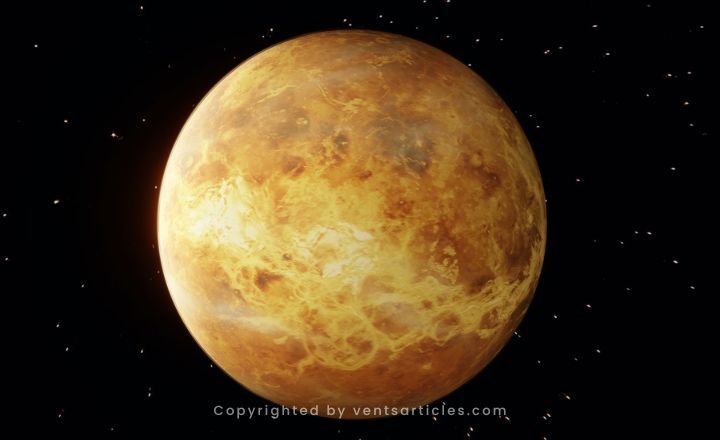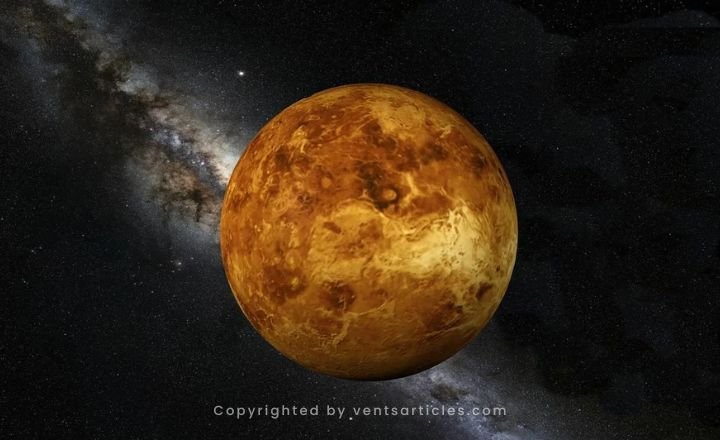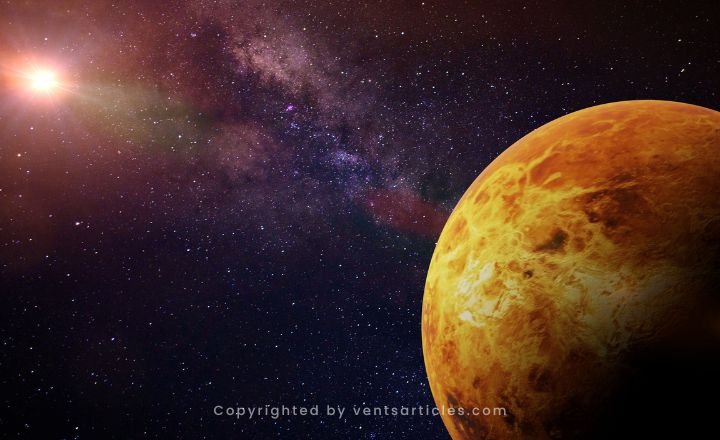
Venus Lusk: Myth, History, and Influence
Venus Lusk is a captivating concept that evokes the mystique and elegance of classical beauty interwoven with modern symbolism. This article aims to unpack the various dimensions of “Venus Lusk,” from its roots in ancient mythology to its transformation in contemporary society, where it continues to inspire and intrigue.
By examining the origins, evolution, and influence of Venus Lusk, readers can gain a deeper understanding of its significance and why it endures as a powerful archetype.
Introduction to Venus Lusk
Venus Lusk is a concept that melds the timeless beauty associated with Venus, the Roman goddess of love, with a deeper layer of mystery and attraction. Unlike traditional depictions of Venus that focus solely on her beauty and romantic appeal, Venus Lusk embraces a more complex character that resonates with contemporary values.
This figure represents an allure that is not merely skin-deep but also incorporates strength, wisdom, and a touch of enigma. The concept of Venus Lusk, therefore, appeals to those who appreciate beauty with substance and who understand that true attraction is both profound and multi-dimensional.
What is Venus Lusk?
To understand Venus Lusk, one must look beyond superficial definitions. It is not merely a reinterpretation of the Roman goddess Venus, but rather an evolved symbol that combines allure with an enigmatic quality.
This idea reflects a deep-seated appreciation for beauty, drawing from historical and mythical roots but with added emphasis on individuality, intelligence, and self-confidence.

Venus Lusk encapsulates a broader spectrum of qualities that make someone attractive, appealing to a universal human appreciation for both visible and invisible qualities. In essence, Venus Lusk is about attraction that transcends physical beauty to touch upon the spirit, mind, and soul.
Historical Background
The Origins of Venus
The concept of Venus Lusk cannot be separated from the legacy of Venus, who was worshipped in ancient Rome as the goddess of love, beauty, fertility, and prosperity. Venus held a powerful position in Roman society, and her influence was seen as extending beyond personal beauty to include the prosperity of entire communities.
Many believed she had a protective role over Rome, adding to her appeal and reinforcing her as a deity of both personal and collective importance. The character of Venus was revered not only for her beauty but also for her ability to influence events, bringing fortune and inspiration to those who sought her favor.
How Venus Evolved Over Time
The character of Venus has evolved significantly through the ages, adapting to different cultures and social expectations. In the Renaissance, artists and thinkers drew upon her image as a symbol of idealized beauty, interpreting her as the embodiment of pure and unattainable perfection.
During the Enlightenment, her character evolved again, taking on attributes that symbolized intellect and the pursuit of knowledge. Venus Lusk is a continuation of this evolution, symbolizing beauty but with a contemporary focus on resilience, independence, and mystery.
Mythology and Symbolism
The mythology surrounding Venus is rich with symbolism, depicting her as a figure of attraction but also one of complexity and influence. Venus played significant roles in mythological narratives, such as her involvement in the Trojan War and her position as the mother of Aeneas, the legendary ancestor of the Romans.
These stories portray Venus as a goddess of not just love, but also power and resilience. Venus Lusk builds upon this legacy, representing a kind of love that is enduring, passionate, and transformative. The symbolism of Venus Lusk appeals to those who see beauty as a force of nature, something that has the power to shape lives, histories, and destinies.
Symbolism of Beauty and Power
While Venus is often celebrated for her beauty, her role as a goddess also includes power and influence, qualities that Venus Lusk brings to the forefront. In this sense, Venus Lusk symbolizes a kind of beauty that is intertwined with strength and wisdom.
It is a reminder that true attractiveness comes from inner resilience and the ability to inspire and captivate. This duality makes Venus Lusk an inspiring figure for people today, especially those who recognize that beauty is most compelling when it reflects both the inner and outer self.
Venus Lusk in Classical Art
In classical art, Venus has been depicted as the quintessential representation of beauty, grace, and femininity. This image has been celebrated in countless paintings, sculptures, and other art forms, with artists like Botticelli and Titian immortalizing her likeness. The portrayal of Venus in these works often emphasized her otherworldly beauty and sensuality.
Venus Lusk, inspired by these depictions, brings these classical ideals into a modern context, combining them with the complexity of character and mystery. By connecting with these historic representations, Venus Lusk serves as a bridge between the beauty standards of the past and the more holistic ideals of today.
The Renaissance and Venus Lusk
The Renaissance period saw a rebirth of classical ideals, and Venus was often depicted as the pinnacle of beauty, embodying harmony and elegance. In a similar way, Venus Lusk channels these ideals, but with a contemporary twist that reflects the importance of inner strength and individuality.

Just as Renaissance artists used Venus to explore ideas about human beauty and perfection, Venus Lusk serves as a modern emblem of how beauty can be both timeless and adaptable, honoring the past while embracing the individuality of the present.
Modern Interpretations
Venus Lusk in Literature
The concept of Venus Lusk often appears in modern literature as a character who embodies allure, mystery, and complexity. Writers draw upon the archetype of Venus Lusk to create characters that are attractive not only for their looks but also for their depth, intelligence, and resilience.
These characters usually play pivotal roles in romantic and dramatic narratives, symbolizing love that challenges, deepens, and ultimately transforms. Venus Lusk, as represented in literature, is a reminder that true attraction lies in the unique combination of qualities that define a person, making them fascinating and unforgettable.
Venus Lusk in Film and Media
In film and media, Venus Lusk appears as a character type that represents an ideal of beauty, often with a sense of mystery and inaccessibility. These characters capture the viewer’s imagination, embodying an allure that is both captivating and emotionally layered.
The Venus Lusk archetype allows filmmakers and artists to explore themes of attraction that go beyond physical appearance, delving into the emotional and psychological elements that make a character truly compelling.
Venus Lusk in Popular Culture
Venus Lusk’s presence in popular culture reflects society’s ongoing fascination with beauty and attraction. From fashion to music, this concept resonates with audiences by representing an ideal that is both timeless and deeply personal.
Celebrities and influencers often embrace the characteristics associated with Venus Lusk, cultivating personas that combine elegance with mystery, charm, and self-confidence. This figure serves as a powerful reminder that attractiveness is often more about aura and attitude than physical appearance alone.
The Allure of Venus Lusk
Venus Lusk’s allure is universal and instinctive, reflecting an attraction that goes beyond what can be seen on the surface. It embodies qualities such as confidence, charm, and mystery, which draw people in and leave a lasting impression.
The timeless appeal of Venus Lusk reminds us that beauty is not limited to certain features or styles but is instead a quality that shines from within, manifesting through personality and presence.
Symbolism in Contemporary Society
In today’s world, Venus Lusk serves as a symbol of beauty that is balanced and multi-dimensional. This concept has evolved to reflect the modern understanding of attractiveness as something that includes kindness, intelligence, and resilience.
Venus Lusk inspires a more inclusive view of beauty, one that values inner qualities as much as outer ones, and encourages people to see their own unique qualities as sources of attraction and strength.
Venus Lusk and Modern Self-Image
The concept of Venus Lusk provides a powerful message for those struggling with self-image, suggesting that true beauty is an inner quality that radiates outward. In an age where individuality is celebrated, Venus Lusk is a symbol of embracing one’s unique beauty, reminding people that confidence and self-love are essential aspects of attraction. This idea encourages people to view themselves as whole and unique individuals, each with their own distinct allure.
Why Venus Lusk Continues to Inspire
Venus Lusk endures as an inspiring figure because it reflects universal values of beauty, love, resilience, and mystery. These qualities are timeless and resonate across cultures and generations, appealing to our shared appreciation for beauty that goes beyond appearance.
Venus Lusk serves as a reminder that attractiveness is a complex blend of outer elegance and inner character, appealing to both the eye and the heart. By embracing the qualities of strength, confidence, and self-acceptance, Venus Lusk reminds us that beauty is an evolving concept that celebrates both our uniqueness and our connection to the ideals of the past.
This enduring symbol continues to inspire individuals to cultivate their inner strengths, embrace their individuality, and understand that true allure is as much about spirit as it is about appearance.
Conclusion
In conclusion, Venus Lusk is much more than a symbol of beauty; it is an archetype that embraces complexity, mystery, and strength. It reminds us that beauty is both timeless and evolving, deeply rooted in inner qualities that define our unique charm and resilience.
By drawing on these ideals, Venus Lusk continues to captivate and inspire, making it a meaningful and enduring figure in both classical and contemporary culture.
FAQs on Venus Lusk
What does Venus Lusk symbolize?
Venus Lusk symbolizes timeless beauty, love, and the power of attraction. Drawing from the Roman goddess Venus, it includes a modern twist that represents allure mixed with strength, resilience, and a hint of mystery.
How is Venus Lusk different from the goddess Venus?
Venus Lusk is inspired by Venus, but it adds depth, embodying both classic beauty and a more profound, enigmatic charm. Unlike the historical goddess, Venus Lusk represents a well-rounded idea of beauty that combines physical attraction with inner qualities like confidence and wisdom.
Why is Venus Lusk popular in modern culture?
The concept of Venus Lusk appeals to universal themes of attraction and individuality. In popular culture, it resonates with those who value beauty that reflects inner qualities, making Venus Lusk an ideal of attraction that celebrates both appearance and character.
What can Venus Lusk teach us about self-image?
Venus Lusk encourages a balanced approach to beauty and self-image, showing that true attractiveness comes from within. It promotes self-confidence, self-acceptance, and the understanding that beauty is multi-dimensional, not limited to physical appearance alone.
Where can Venus Lusk be seen in popular media?
Venus Lusk appears in various forms across popular media, from literature and art to film and social media, where it serves as an archetype of beauty, mystery, and strength. The influence of Venus Lusk is often found in characters who embody elegance, allure, and a captivating inner depth.